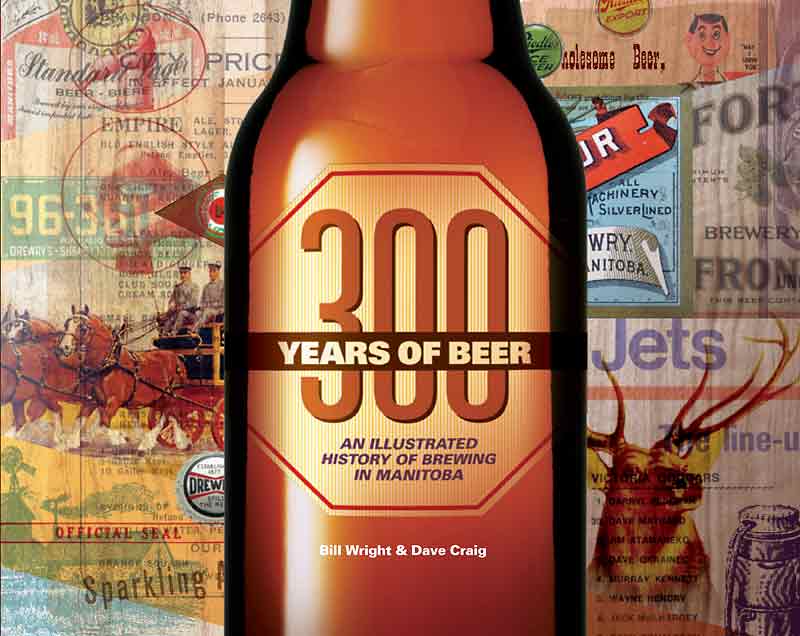Pair of writers tap into province’s brewing history
Advertisement
Read this article for free:
or
Already have an account? Log in here »
We need your support!
Local journalism needs your support!
As we navigate through unprecedented times, our journalists are working harder than ever to bring you the latest local updates to keep you safe and informed.
Now, more than ever, we need your support.
Starting at $15.99 plus taxes every four weeks you can access your Brandon Sun online and full access to all content as it appears on our website.
Subscribe Nowor call circulation directly at (204) 727-0527.
Your pledge helps to ensure we provide the news that matters most to your community!
To continue reading, please subscribe:
Add Brandon Sun access to your Free Press subscription for only an additional
$1 for the first 4 weeks*
*Your next subscription payment will increase by $1.00 and you will be charged $20.00 plus GST for four weeks. After four weeks, your payment will increase to $24.00 plus GST every four weeks.
Read unlimited articles for free today:
or
Already have an account? Log in here »
Hey there, time traveller!
This article was published 06/06/2013 (4628 days ago), so information in it may no longer be current.
Over the decades, at least eight breweries have operated in Brandon —and they’ve all closed.
That’s one takeaway from a new book being launched today that examines three centuries of brewing history in Manitoba.
But Bill Wright, a former Brandonite who co-authored the book with Winnipeg beer memorabilia collector Dave Craig, says that recent changes to provincial liquor laws have him hopeful that Premier Brewing (closed in 1930) won’t be the last in town.

“I think there’s going to be an explosion, as far as brewpubs go, now with the new rules in place,” he said.
Wright says that Winnipeg breweries Half Pints and Fort Garry are building on a long tradition of making beer in Manitoba, and even newcomers like Neepawa’s Farmery or the (full disclosure: this reporter’s) Brewtinerie project in Brandon’s firehall have a lot of history they can draw on.
“There were breweries in other places, not just Brandon and Winnipeg,” Wright said.
His book, “300 Years of Beer: An Illustrated History of Brewing in Manitoba,” details those smaller, almost-forgotten breweries that kickstarted the beer business here.
The full-colour, large-format book is 200 pages that are chock-full of vintage labels, historical photographs, amusing anecdotes and brewing memorabilia dating back to the 1870s. It’s published by Great Plains Publishing and is being launched today at McNally Robinson in Winnipeg.
Wright said that the $35 volume should be available at any bookstore or online as well.
Along with a history of Brandon and Winnipeg brewing, Wright and co-author Craig trace the history of brewing back to 1694, when brewing began at the Hudson Bay Company headquarters at York Factory, south of modern-day Churchill. Despite battles with the French, brewing at that location is documented for at least a century; then in the 1800s, the action moved to the south of the province.
Extensive chapters document once-familiar names like Winnipeg’s Shea and Drewry, as well as industry consolidation under Labatt and Molson. There are even pages devoted to the rise and fall of the iconic stubby.
Along with Winnipeg and Brandon, the book traces the life of the tiny breweries that once sprinkled the province, from Lower Fort Garry and Emerson, to Portage la Prairie, Neepawa and Minnedosa.
Business at Spring Hill Brewery in Minnedosa (1886-94), for example, was humming along so briskly in 1888 that the business had to stop advertising just to try to keep up with demand. It was even rebuilt after burning down. However, after some tax troubles and the death of one of the founders, the brewery was closed and moved to Neepawa in 1894.
The Neepawa Brewing Co. would last only two years in the otherwise dry town —a petition to Ottawa convinced the government not to renew its licence.
More than a century later, Wright says, conditions may finally be ripe to bring brewing back to rural Manitoba.
“It’s really mind-boggling that we don’t have more than two micro-breweries,” he said. “I’m glad that Half Pints is doing well, and Fort Garry is still around.” Both are profiled in the book, along with the Neepawa brothers who are trying to bring brewing back to that town with the Farmery estate brewery.
Interestingly, he says, it’s memorabilia from those smaller rural breweries that can be the most sought-after by collectors.
“There are no labels from Neepawa or Emerson or Portage,” he said. “That would be a real find.”
Vintage beer labels can go for anywhere from $25 to $400 in online auctions, he says. Getting the chance to meet with local collectors and document their stashes was one of the perks in the five- or six-year process of writing the book.
“Some of these guys, their whole house is displays,” he said. “That was the fun part.”
» ghamilton@brandonsun.com
